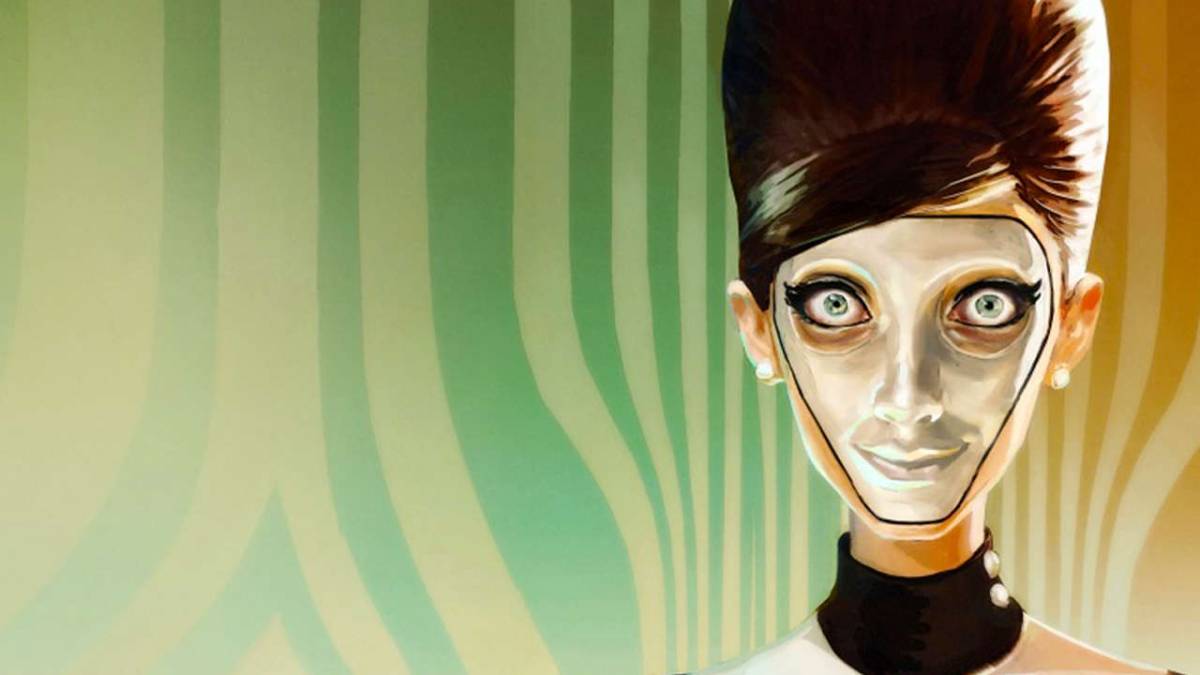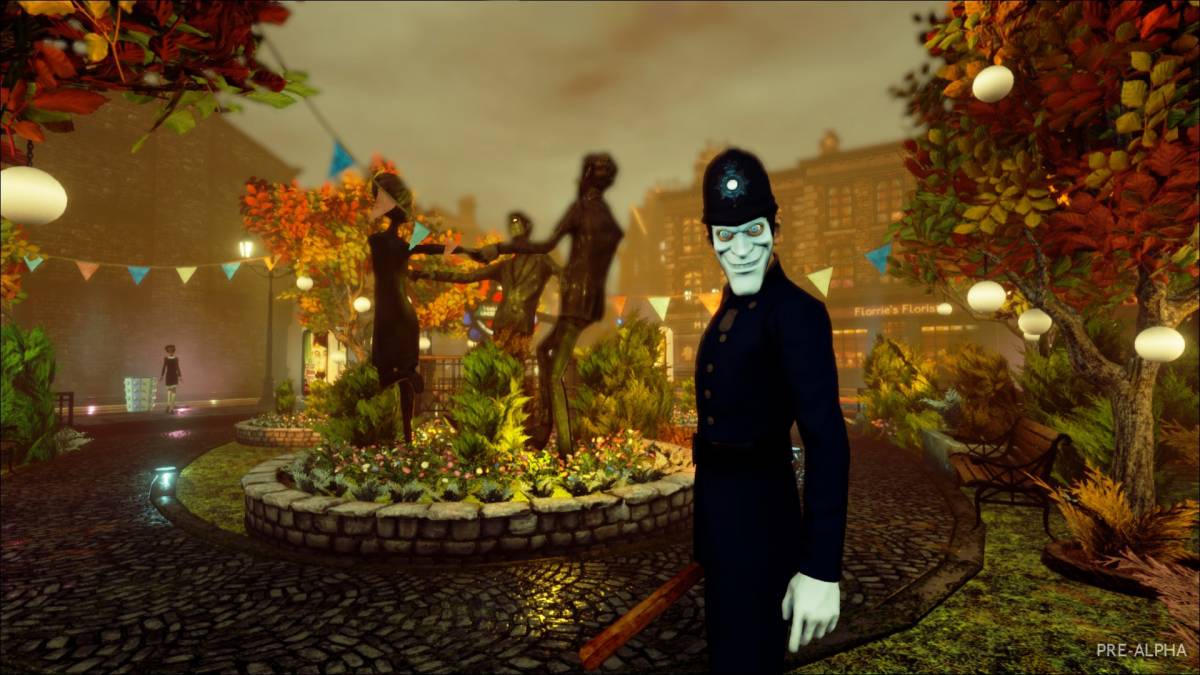When people consider dystopias, they are more inclined to think of the Fallouts and zombie games. With We Happy Few, the player is thrown into a post-war England that shows us not only the physical effects of war, but also the emotional ones, too.
Part Mirror’s Edge, part Jesus-Christ-this-is-creepy, We Happy Few has an uncomfortably surreal sense of humour in it. Since most of the characters around the map are taking Joy, a drug that suppresses bad memories and encourages positivity, they are often mentally in a very far away state to what the player, a Downer, sees. The player can experience this if they find some spare Joy lying around, in which the broken Britain with overgrown weeds is turned into the visual opposite, with lush fields and smiles on everybody’s faces.
The map is divided up into different classes, based roughly on socioeconomic backgrounds. In some parts of the map you’ll fit in in a torn suit, looking tired and hungry and it’s not the biggest suspicion if you’re crawling around searching for scraps of food. Yet, the other districts require you to act like a normal member of this abnormal society, you have to have a higher quality of appearance, and actions that deviate from the effects of Joy are frowned upon, often with the punishment of have constables chase you.
The open world environment is not as rich as Fallout where it seems a quest is hidden around every corner, and every room is a chance for adventure. In We Happy Few, it is more notably a collection of linked quests in an open world environment, but the style of the game adds a layer of intrigue to these fetch quests and missions, so that rather than seem like a chore they are adding to the mythos and slowly revealing more of this cracked world.

The crafting function in the game works at its most basic point: the ability to craft lockpicks, jimmy bars and a few other items to make it easier to get around. Often, the resources can be difficult to find unless you know what you’re looking for, and thus it means that you’re using items sporadically rather than helping yourself to the choice in front of you. We Happy Few also manages to pull off the survival mechanic better than most games. Sleep, food and drink are essential, unless you want to suffer negative side effects, including death. Initially, from the beginning of the game, this may seem like it won’t be an issue, but in the worst district, you have to combine the rotten food you find with medicine to avoid getting contaminated, and within a few hours you are carefully budgeting your inventory.
The map, while open, is restricted into what buildings you can and can’t go into. The player will realise that it’s a safer bet just to realise that you can’t go into many homes at all, unless the door is ripped off, or the easiest identifier is that there is a symbol on the map. The game is in Early Access, so it’s forgivable, but you’d hope that the final product will have intricate designs and stories in each of these buildings. So far they seem fairly formulaic, aside from the drawings on the wall, and the eerie messages that are scrawled, haunting the player as they go to loot.
The early access so far only hints at the single player, and this is something that will ultimately define We Happy Few. With the unique setting, surreal humour and open gameplay, I hope that it will deliver a single-player experience that will blow other contemporary games out of the water. Yet, if it doesn’t deliver on this, it will be a waste. There’s enough in the game that means it’ll be a rich and open world, but not enough that means it won’t be able to survive without a strong story. Here’s hoping the developers are aware of this, and the story that they are working on will do the game justice. It would even strengthen the world if the player has an influence, and there is an option to how quests are completed, somewhat emulating Dishonoured in its choices across a storyline. That being said though, even at this stage We Happy Few is a unique and fun experience, which will rest in the players brains a lot longer than the incoming tide of formulaic releases that appear on Steam every day. It’s worth the player’s time in the current state, so here’s hoping it will become even better. No Joy pill required.
Some of the coverage you find on Cultured Vultures contains affiliate links, which provide us with small commissions based on purchases made from visiting our site.

